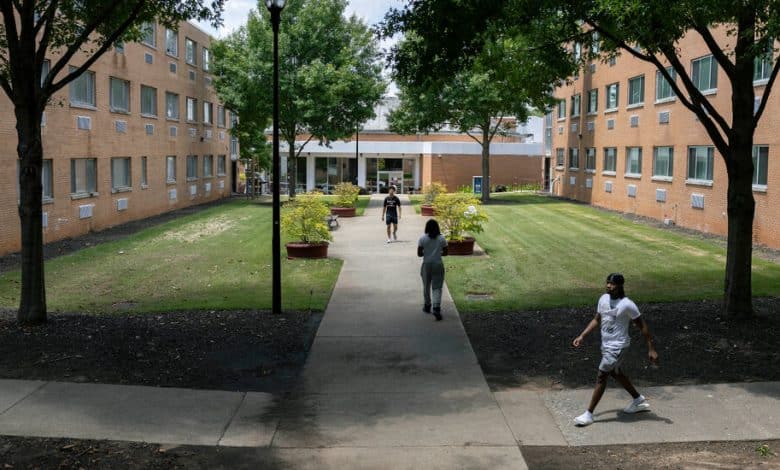Why Antiwar Protests Haven’t Flared Up at Black Colleges Like Morehouse

As President Biden prepares to give graduation remarks this month at Morehouse College in Atlanta, a prestigious historically Black institution, the White House is signaling anxiety about the potential for protests over the war in Gaza.
During a recent visit to Atlanta, Vice President Kamala Harris stopped to ask the Morehouse student government president about the sentiment on campus about the conflict, how students felt about Mr. Biden’s visit and what the graduating class would like to hear from him on May 19.
Then, on Friday, the White House dispatched the leader of its public engagement office and one of its most senior Black officials, Stephen K. Benjamin, to the Morehouse campus for meetings to take the temperature of students, faculty members and administrators.
The reasons for concern are clear: Nationwide demonstrations over the war and Mr. Biden’s approach to it have inflamed more than 60 colleges and universities, stoked tensions within the Democratic Party and created new headaches for his re-election bid.
Yet Mr. Biden appears to be entering a different type of scene at Morehouse.
While anger over the war remains palpable at Morehouse and other historically Black colleges and universities, these campuses have been largely free of turmoil, and tensions are far less evident: no encampments, few loud protests and little sign of Palestinian flags flying from dorm windows.
The reasons stem from political, cultural and socioeconomic differences with other institutions of higher learning. While H.B.C.U.s host a range of political views, domestic concerns tend to outweigh foreign policy in the minds of most students. Many started lower on the economic ladder and are more intently focused on their education and their job prospects after graduation.
